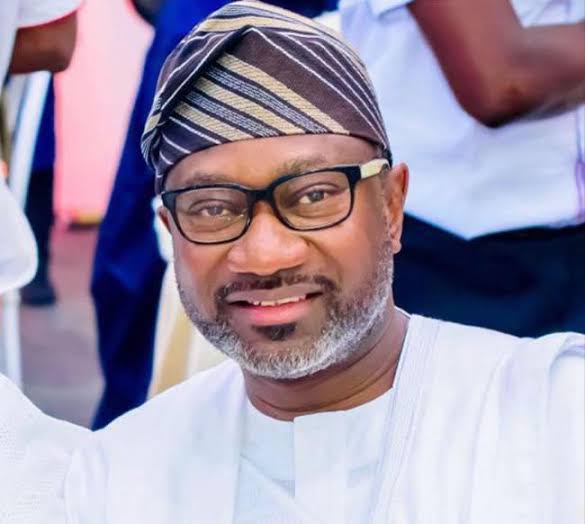● Champions Wealth Redistribution, Ethical Reforms
Amidst the undulating rhythms of Nigeria’s beleagured economy, Femi Otedola’s recent proclamation resonates like a clarion call for equity and economic renaissance. The Chairman of FBN Holdings, a luminary in the financial firmament, has lent his formidable support to President Bola Tinubu’s windfall tax, a measure designed to balance the scales of wealth distribution.
Otedola’s endorsement is more than a nod to fiscal policy; it is a manifesto for a fairer economic order. “I express my strong support for the implementation of a windfall tax in Nigeria and to highlight the critical role this measure plays in fostering a fairer and more equitable economic environment,” he declared, setting the stage for a transformative discourse on economic justice.
There is no gainsaying Otedola’s endorsement of President Tinubu’s windfall tax marks a pivotal moment in the nation’s quest for fiscal justice and economic stability.
Standing as a colossus in Nigeria’s financial and capital markets, Otedola has thrown his considerable influence behind the windfall tax, a measure aimed at redistributing extraordinary profits for the greater good. With eloquence and conviction, he proclaimed his unflinching support for Tinubu’s new tax policy.
A New Dawn of Fiscal Fairness
In a nation where economic disparity has often cast long shadows, Otedola’s endorsement shines as a beacon of hope. The windfall tax, levied on companies and individuals reaping substantial, unexpected profits, aims to bridge the chasm of inequality. By channeling these gains into essential public services—healthcare, education, infrastructure—the tax promises to uplift millions, reducing social inequities and fostering a more inclusive economy.
A Word for Extravagant Bank Chiefs
Otedola’s declaration goes beyond mere fiscal policy. With a stern gaze cast upon the banking sector, he condemned the profligate expenditures that have marred its reputation. “The core values of banking—trust, integrity, and service—must be upheld,” he emphasized. His critique targeted the alarming trend of bank chiefs indulging in the acquisition and maintenance of private jets, a vanity costing Nigerian banks an estimated $50 million annually. Over $500 million has been squandered on purchasing nine private jets by four banks, resources that could be better spent on enhancing operational efficiency and technological innovation.
Echoes of Ethical Leadership
The magnate’s support for the windfall tax resonates with the Federal Government’s broader reforms aimed at stabilizing and reforming the banking sector. Otedola lauded the recapitalization initiative, which sets substantial minimum capital requirements for banks, fortifying their ability to contribute to Nigeria’s economic development. “It is crucial for banks to focus on operational efficiency, technological innovation, and customer service, rather than executive extravagance,” he urged, calling for a redirection of priorities that aligns with national development goals.
Redistributing Wealth for National Growth
The essence of Otedola’s message lies in the potential of the windfall tax to fund critical infrastructure projects, enhance healthcare access, and bolster educational initiatives. “The revenue generated from windfall taxes can be channeled into essential public services, benefiting all citizens and helping to reduce social inequalities,” he stated. The consolidation of foreign exchange rate systems into a single investors and exporters (I&E) window has led to significant increases in the value of bank assets denominated in United States Dollars. This extraordinary gain, Otedola argues, should be harnessed for public good, addressing the intense pressure on public finances and alleviating the cost-of-living crisis many Nigerians face.
Aligning Financial Priorities with National Development
Otedola’s vision extends beyond mere taxation. He envisions a banking sector that is not just profitable, but principled, a sector where financial gains are reinvested into the economy rather than lavished on personal luxuries. “To regain the trust of the Nigerian public and fulfill its pivotal role in the nation’s economic development, the banking sector must realign its financial priorities,” he declared. Investments should be directed towards improving customer services and enhancing technological infrastructure, ensuring that banks contribute positively to Nigeria’s economic fabric.
A Call to Ethical Stewardship
Otedola’s call is a rallying cry for all stakeholders in the Nigerian banking sector and the broader economic community. “I urge all stakeholders to rally behind these visionary reforms. It is time for our financial institutions to embody the highest standards of integrity and service, ensuring a stronger and more resilient economy for all Nigerians,” he implored. His words echo the necessity for ethical stewardship and a commitment to the greater good, principles that are essential for sustainable growth.
As Nigeria stands on the cusp of a new economic era, Femi Otedola’s support for the windfall tax underscores the critical need for equitable reforms. His condemnation of executive extravagance serves as a powerful reminder of the values that must guide the nation’s financial institutions. In championing these reforms, Otedola not only supports a fairer economic environment but also paves the way for a future where Nigeria’s wealth is harnessed for the benefit of all its citizens. His vision is a clarion call for ethical leadership and fiscal responsibility, a vision that promises to transform the economic landscape and secure a prosperous future for Nigeria.




